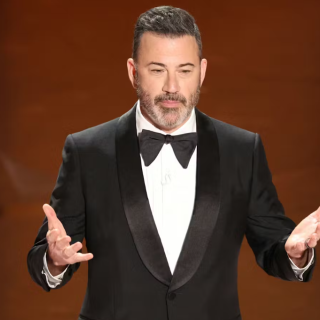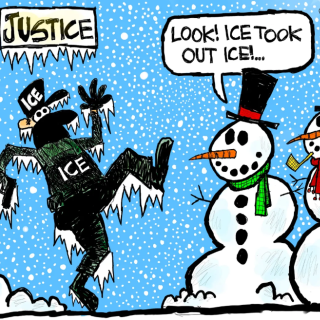Both the United States and Canada experience unusually widespread struggles over their pasts. Today, the North American neighbors reveal both similarities and differences in their national debates over the continuing relevance and conflicting meanings of their histories. Racial policies and relationships—past and present—are central to these discussions and sometimes acrimonious debates. Comparing Canadian and U.S. attitudes, responses, and proposed policies tells us much about the challenges of democracy as well as the active role of the past in the present. Historians have a special opportunity, indeed a responsibility to contribute.
The issues north and south of the border are different but overlap significantly. In the U.S., the largely false debate (much more of a non-debate) over “critical race theory” — in fact, much more about teaching the history of race and slavery in schools (especially K-12/13) — has become prominent. It results from a well-funded, organized national campaign by right-wing activist groups and their political allies, publicized by right-wing media and political leaders, and fueled by propagandists who fabricate dishonest reports about curricula and scholars. The websites of Heritage Action, 1776 Project, and Citizens for American Renewal showcase their “handbooks” and “toolkits” that distort the issues, present sample bills for state legislators to use, and instructions on how to disrupt local school board meetings, among other partisan propaganda and disinformation. They seek to intimidate teachers and students, mislead parents, circulate lies, and stoke grievances. Repeated by legislators in Republican-dominated states, they seek to “ban” such teaching. The unconstitutional campaign promotes fear, aims at intimidating.
Particularly offensive is Dr. Ralph Reed, PhD’s Faith and Freedom Caucus who seek donations “To Teach Millions of Young Americans What Made America Great and Train the Next Generation of Patriotic Leaders for America.” They combat “the Assault on America by the Media, Our Nation’s Educational Institutions and Today’s Democratic Party.” “American historian, but non-practicing, Reed is creating a fictitious American past.
In Canada, the galvanizing public issue is the treatment of Indigenous children in government-mandated residential schools from the mid-19th through the late-20th century. The new and continuing discoveries of the unmarked graves of over one thousand Native children at several school locations in several provinces—and news that children were awakened late at night to dig graves for their peers--has launched a public reckoning.
It builds on earlier foundations. Following a national Truth and Reconciliation Commission in 2017, today’s demands for public accountability and reparations are widespread and heartfelt (even if its recommendations await action). An Every Child Matters movement grows in momentum. (Five of us in Columbus, Ohio, proudly wear its “orange shirt.”) As my Canadian colleagues remind me, none of the Commission’s recommendations has been enacted, and there is growing dissatisfaction about that.
As an American historian who did graduate studies for five years as a Landed Immigrant in Toronto, I find the cross-border contrast stunning. Canadians’ differences over the historical and more recent roles of the French and English colonists and their descendants are far less damaging than many Americans’ unwillingness to confront race and the legacies of slavery.
Today, the rediscovery of the 1921 Tulsa, Oklahoma, and other race massacres, and the excavation of countless graves of the murdered have not prompted demands for a national reckoning, unlike the present moment in Canada. More graves of Indigenous children at American residential schools. The mention of reparations for the enslaved or those whose ancestral lands were stolen draws much more outrage than sympathy. Only this summer did mayors of eleven U.S. cities, large and small, launch Mayors Organized for Reparations and Equity(MORE) in support of one sort of reparations or another.
The tragic history of American Indigenous Peoples receives insufficient acknowledgement, much less in the U.S. than in Canada. Only this summer, the Secretary of the Interior, Deb Haaland (the first Native American to hold a cabinet-level position), called for an investigation of residential schools. Nothing is said about a national reckoning.
Not only do Americans divide bitterly over the realities of their own history and fight over its very place in K-12 education, but proposals for a national Truth and Reconciliation Commission (like Canada’s and other nations’) have failed in Congress for several years. They only pertained to blacks, not Native Americans.
How do we explain these critical divergences? First, I acknowledge that it is easy to exaggerate the national differences. I caution against that too easy tendency. I call on my fellow historians of both nations but especially those across the border.
To begin, Canada lacks a sustained and consistent myth of Canadian “exceptionalism” in contrast to the conflicting myths of American history, such as “the lost cause” of the Civil War and incomplete versions of the Republic’s founding? The contradictory responses to the landmark 1619 Project reflect that well. Canada presents a national myth of “multi-culturalism,” in contrast to the American ideology of “assimilation,” a meaningful difference. Granting that such “myths” are at best partial and incomplete accounts and explanations, we must recognize that myths only gain their acceptance because they resonate with some elements of “truth.” Overarching if dramatically incomplete myths are at least in part responsible the divergence.
At least part of the difference lies in the state of public education in the two countries? It is possible that many Canadians value education especially non-vocational education more highly. I also posit that more Canadians share a sense of the national past and that their differences relate less directly to political partisanship.
Given national traditions, I would also argue that Canadians overall have a greater respect for history and historians. The contradictory legacies of the French settlers and English colonists, Europeans and Indigenous peoples, Canada and the nation to the south, and Canadians’ conflicting reactions to non-white immigrants may have an impact on that, partly in contrast to the larger and more diverse (but less tolerant) United States. The level of history education is perhaps higher and deeper. In the mid-1970s, a colleague and I were commissioned to prepare a volume on “Children and Schools in Nineteenth-Century Canada” for the National Museum of Man’s [sic] Canada’s Visual History series. There was nothing like that in the US. The Social Science and Humanities Research Council of Canada has been more innovative in its initiatives than the US’s National Endowment for the Humanities.
To some extent, the difference also follows from the actions of political leaders and partisan factions — and the parliamentary system in Canada as opposed to the institutions in the U.S. My experience, and admittedly somewhat distant observations, support a view that Canadian leaders are more responsible and knowledgeable, and the polity is less divided. Certainly Canada has never experienced a Donald Trump’s denial of the American past, attempts to ban certain documented aspects of it, and endorse a 1776 Commission on “patriotic” (that is, incomplete, wholly positive, and literally white-washed) historical education.
I would also suggest that more Canadians are committed to equality and tolerance. National opinion polling, with all its limits, suggests that. Respect for law and order may also be more genuinely embraced. More broadly, there seems to be less rampant disinformation. A Canadian scholar refers to broad initiatives supporting “Knowledge Mobilization”; there is nothing like that in the U.S.
We need to know much more. A systematic comparison of these close neighbors can help us restore and protect democracy in both countries. Historians, let’s place these questions high on our agendas.
Harvey J. Graff is Professor Emeritus of English and History at The Ohio State University. He earned M.A. and Ph.D. degrees at the University of Toronto. He is the author of many books on American, European, and Canadian social history. Canadian scholars Chad Gaffield, Michael Doucet, and Sarah Neville helped to stimulate my thinking.



